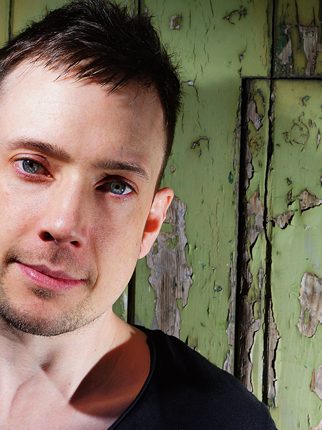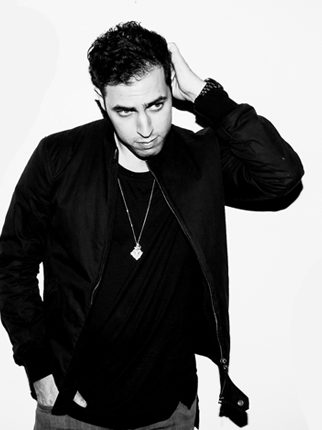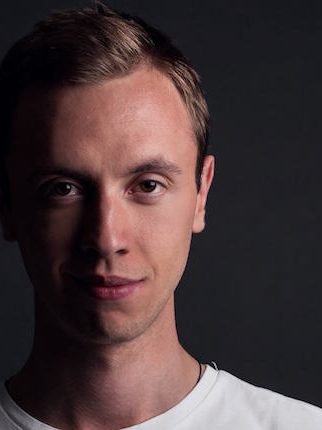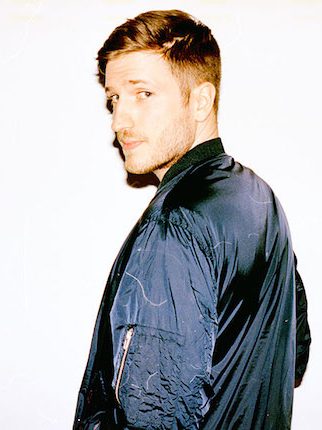A Cappella: Etherwood
While some artists have become international sensations overnight, most have spent years in the studio and on the road, honing their skills and building their repertoire, before making a splash on the global scene. We discuss that process and the tools of the trade in our A Cappella series.
There’s no shame in musicians who are limited to tinkering around on a DAW in order for their musical ideas to take form. But there’s something to be said about the ones who can also pick up an instrument to bring that inimitable organic touch to the table. You may consider giving some extra points to Etherwood, the UK phenom that triples as producer, multi-instrumentalist and vocalist with a keen ability to keep listeners’ faces stuck in the omg expression.
His tutelage under the Med School crew, the sister label of the mighty Hospital Records, has seen him excel as one of drum & bass’ finest pupils. The studio is his designated operating room, a place where he shines as a natural-born beat surgeon. He’s homed in on an emotive, transcendental quality that begs to be praised, with his wide-reaching Blue Leaves LP showing all sides of what this party physician has to offer. It’s a classic case of the student becoming the teacher, and we’re all ears as Etherwood lets us pick apart his production process.
What value do you place on environment as a creative springboard? Some people have very specific requirements, from weather, time and geography to office or studio setup.
I think most artists come to rely on certain environments in order to be creative. I love to work through the night, when most of the world is asleep. Everything is much calmer, and I find a strong sense of peace when it’s dark outside. I’ll have fairy lights on and incense sticks burning, and I’ll usually meditate before I start working on something. It’s all about atmosphere and allowing yourself to feel inspired to write. I find that I’m most creative in the autumn and winter. The days get shorter, and I can always sense this wave of influence as a result. The opposite can be said when it’s time to finish a tune or stick to a very short deadline. I need to place myself outside of my comfort zone in order to see a track in a more objective light. I use the Hospital Records studio a lot for this. It’s funny how different a track can sound in another environment.
“It’s like the last thing you’d want to do after running a marathon is then run home.”
How do you overcome a creative block? When was the last time this happened to you, and what were you working on?
I suffered a long period of writer’s block after completing my second album. I poured my heart and soul into it, and it was physically and emotionally draining. It’s like the last thing you’d want to do after running a marathon is then run home. I need to feel inspiration before I sit at my desk. I can’t do what a lot of producers do and write something from a blank slate. I’ll be on my way to the shop or out having a couple of drinks and an idea will come, and I’ll record something into my phone and go to the studio to get it down. That’s always the way it’s been for me. Since autumn has arrived I’ve started to write again, and it feels great. It can be difficult and stressful when your living depends on your ability to create something from nothing. If it’s not there, it’s simply not there. I also swear by taking a shower if you’re halfway through a song and don’t know where to take it. Trust me, it’s great!
Do you remember the first time you had the dancefloor’s complete attention? Do you remember how you felt at that particular moment? What records were you playing?
The most memorable moment for me since I started DJing was at a Hospital Records show last summer. The label held a BBQ in an outdoor space in South London. It was a really sunny day and boiling hot, and the place was packed out. I think I played at around 6pm, but the whole club was going crazy by this point. Toward the end of my set, I dropped one of my earlier tunes, “Spoken.” When the vocal came in, the entire club had their hands in the air and everybody was singing along. It was such an amazing moment for me and, seemingly, everyone else there. It was even more special being one of my own tracks. I’ll never forget that. Other than that, it’s generally the anthemic “hands in the air” tracks that get the best reaction at my shows—usually High Contrast.
What’s the longest studio session you’ve put yourself through in one sitting? What were you working on?
Music is the only thing that has ever held my attention for more than half an hour. Throughout school and university, I would get bored so easily, even if there was a subject I was really interested in. It’s the creative process that really grabs me. When you can feel ideas inside you, and being able to reflect on those moments of inspiration and create something that everyone else can also feel—that’s what it’s all about for me. I’ll regularly stay in the studio for 10-plus hours when I’m in the very early stages of a song. It’s so encompassing that I’ll go hours without eating or drinking and only stop occasionally to use the toilet. I’ve never known anything like it. I can’t take myself away to even answer a phone call or reply to an email. It’s like falling into a trance. The longest session I had recently was 8am till 5am. My body hates me.
Has the role of the DJ switched? Performer vs. selector. What does being a DJ mean to you?
Every artist has their own style of DJing, which usually reflects the music they make. Obviously, some DJs don’t produce, so their style has been honed by the music they love. Personally, selection is key. Whether it’s mixed this way or that way—whether you’re jumping around on the table with desserts in your hand, or wearing a skeleton mask swinging around butt-naked on a rope in front of a projection of a dog dressed as a clown—if the selection is weak, the crowd will feel it. It seems that, as certain genres and artists gain higher popularity, there is more pressure to “perform.” I totally get that. When I first started going to raves, most of the time you had no idea where the DJ was. There was no stage, no bright lights. Everyone was vibing to the music. This has changed a lot as the DJ has become more iconic in recent years and is revered more than the music itself. I think it’s important to get the balance right. DJing should be comprised of performance AND selection—anything that keeps the crowd dancing. 🙂
Follow Etherwood on Facebook | Twitter | SoundCloud





